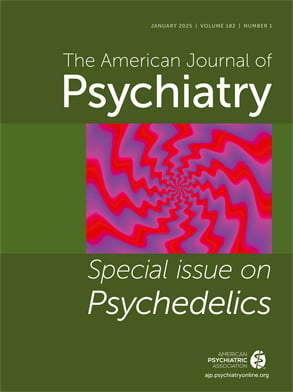T
o the E
ditor: In the August 2010 issue of the
Journal, Mary V. Solanto, Ph.D., et al. (
1) reported promising treatment effects for meta-cognitive therapy on adult attention deficit hyperactivity disorder (ADHD). This treatment combined traditional cognitive-behavioral therapy (CBT) with time management and organization skills training and warrants further evaluation. However, it is important to raise questions concerning the true nature of this treatment and its labeling as a meta-cognitive intervention.
The treatment does not directly attempt to modify metacognition, defined as thoughts or beliefs about cognition and the strategies used to control attention and thinking. It is therefore misleading to refer to this treatment as “meta-cognitive therapy.”
Solanto and colleagues' approach was grounded in the cognitive rather than the meta-cognitive domain. This is because it consisted of enabling participants to break down tasks into manageable chunks (a cognitive skill) and to visualize long-term reward along with CBT for depressive and anxious thoughts (manipulating cognitive content).
A meta-cognitive approach to training executive control or attention skills would look very different. Meta-cognitive therapy for ADHD would challenge beliefs about attention, worry, and rumination and train individuals to disengage task-interfering cognitions and resist distraction. Attention skills might be directly facilitated by exercises in the flexible control of attention by methods such as the attention training technique (
2).
In contrast, Solanto et al. (
1) modify the content of cognition (e.g., challenge negative thoughts and help individuals break tasks down). Although useful, cognition-focused interventions do not examine and directly change the metacognitions that control thinking and give rise to unhelpful patterns of attention. Some evidence exists that cognitive interventions do change metacognition (
3), but they do not do this directly or optimally.
Why does any of this matter? Because there is well-defined meta-cognitive therapy (
4–
5) for psychological disorders that operates directly on metacognition. It has taken many years for the distinction between CBT and meta-cognitive therapy to be realized (
6), and the mislabeling of treatments is a regressive step.

